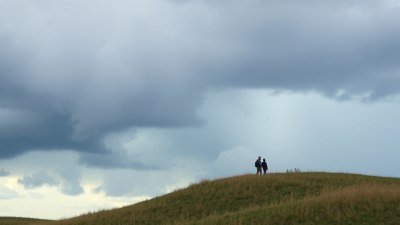The Real Reason You Want to Go Hiking in Fall and Hibernating in Winter
Explore the connection between hiking in fall and winter hibernation instincts, and discover the benefits of outdoor adventures.

This image was created with the assistance of Freepik
As the leaves change color and temperatures drop, many individuals feel an innate pull towards the outdoors. Autumn, with its crisp air and vibrant foliage, beckons enthusiasts and casual walkers alike to take a hike. But what is it about the fall season that ignites this desire to connect with nature? And as winter approaches, why do we find ourselves longing for a period of hibernation? Understanding the psychological and biological reasons behind these seasonal behaviors can enhance our appreciation for both hiking in the fall and resting in the winter.
The Allure of Fall Hiking
Fall is a particularly captivating time to explore nature. The cooler temperatures are perfect for vigorous activity, and the stunning transformation of the landscape creates a picturesque backdrop. Hiking during this season offers more than just visual beauty; it also presents numerous benefits for physical and mental health.
Physical Health Benefits
Engaging in physical exercise such as hiking is vital for maintaining a healthy body. During fall, the temperatures are often mild, allowing hikers to exert themselves without the extreme heat or cold. Hiking strengthens the cardiovascular system, builds endurance, and can aid in weight management. The changing terrain as the weather shifts provides new challenges and a refreshing sense of adventure.
Mental Clarity and Emotional Wellbeing
Beyond physical advantages, hiking in the fall can greatly enhance mental health. Nature exposure has been shown to decrease depression and anxiety levels, and the colorful landscapes offer a unique form of therapy. Hiking allows individuals the opportunity to disconnect from the fast-paced digital world, fostering mindfulness through the sound of crunching leaves, the sight of vibrant colors, and the scent of fresh air. The solitude found in nature can be restorative, providing peace of mind and clarity.
The Importance of Seasonal Awareness
Humans have always responded to the cycles of nature, and an awareness of seasonal changes can greatly influence well-being. During autumn, the shortening days and cooler temperatures signal to our bodies to prepare for winter. This instinct can shift our daily habits, often making us crave outdoor activities that align with our body’s natural rhythms.
A Connection to Nature
Participating in outdoor activities such as hiking allows individuals to reconnect with nature and experience the world in a more engaged and meaningful way. The vivid colors of fall foliage or the rustle of leaves underfoot serve to remind us of the beauty and impermanence of life. This connection enhances our appreciation for the environment and fosters a sense of responsibility in preserving it.
The Evolutionary Perspective
From an evolutionary standpoint, humans have adapted to the changing seasons as a survival mechanism. The instincts that inspire us to venture outdoors during fall mirror those of our ancestors who relied on seasonal changes to gather food and prepare for the short, harsh winters. In doing so, we engage with a natural instinct that is woven into the fabric of our being.
Embracing the First Signs of Winter
As fall fades into winter, many people begin to feel a pull towards hibernation, reflecting an innate need for rest and rejuvenation. Just as bears retreat to their dens, we often seek cozy indoors during the harsh winter months. The reduction in daylight can trigger a sense of sleepiness, as our bodies may naturally want to conserve energy during this time.
The Importance of Rest
Hibernation, or at the very least, a slower pace during winter, is critical for restoration. Sleep patterns change with the seasons, and tapping into this rhythm can result in improved energy levels and overall health. Embracing a winter hibernation phase allows us to reflect, set new intentions, and prepare for the rebirth of spring.
Crafting a Winter Routine
During the winter months, instead of succumbing to the lethargy that often accompanies colder weather, developing a routine that balances rest and activity can nurture both body and mind. Embrace indoor hobbies, read books, or spend quality time with loved ones. Finding ways to enjoy the season, whether it’s through seasonal cooking, crafting, or even indoor workouts, can enhance the winter months and provide a sense of accomplishment.
Connecting with Others
Just as hiking in the fall can enhance connections with friends and family, winter can also be a time for communal activities. Organizing cozy gatherings, collaborative cooking evenings, or even local community events can be nourishing. These interactions help combat the isolation that is often felt during the colder months and contribute positively to social well-being.
Understanding the real reasons behind our desire to hike in fall and hibernate in winter offers a fascinating glimpse into human behavior and psychology. By being aware of the natural rhythms of the seasons, we can harness these opportunities for growth, connection, and well-being. The interplay between fall hikes and winter hibernation reveals deep-seated instincts that are as relevant today as they were for our ancestors. Embrace the beauty of the fall and winter seasons, and allow these periods to enrich your life in unexpected ways.











